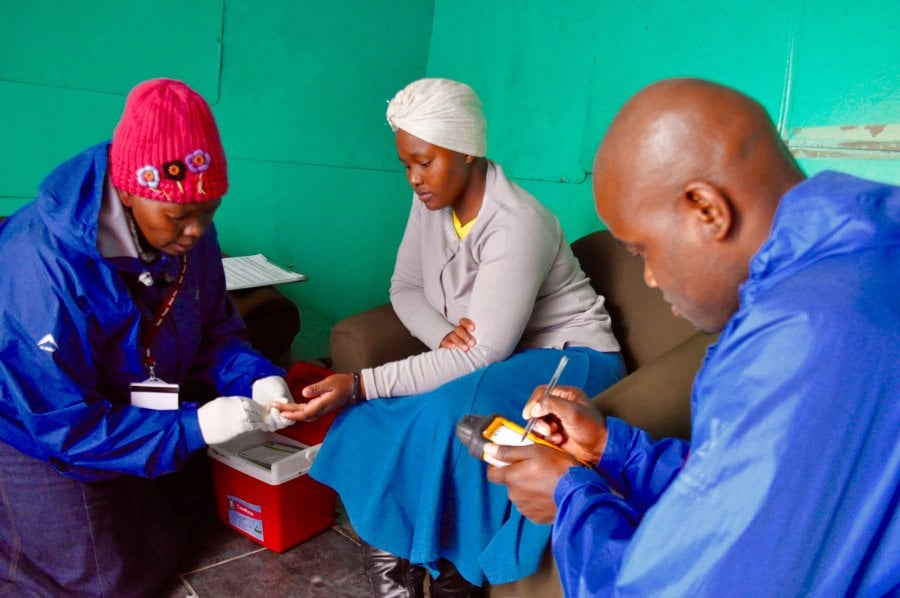‘Test and Treat’ intervention could contribute to towards HIV elimination by the year 2030
24 July 2019 London School of Hygiene & Tropical Medicine London School of Hygiene & Tropical Medicine https://lshtm.ac.uk/themes/custom/lshtm/images/lshtm-logo-black.png
The findings follow the publication of results from HPTN071 (PopART), the largest ever HIV prevention trial to be conducted. It found that offering entire communities voluntary HIV testing, and immediately referring those who test positive for HIV treatment in line with local guidelines, could make a significant contribution to controlling the epidemic of new HIV infections in southern Africa.
The research team was led Richard Hayes, Professor of Epidemiology and International Health at the London School of Hygiene & Tropical Medicine and Dr. Sarah Fidler, Clinical Professor of HIV Medicine at Imperial College London.
Professor Hayes said: “The primary results showed that the PopART universal testing-and-treatment intervention reduced the incidence of new infections – at population level – by about 20%. To guide policy, it was very important to find out what the intervention cost to deliver and to determine how much its effect on incidence would build up over time.
“At IAS 2019 the team reported the results of model projections showing that by the year 2030 new HIV infections each year will be 50-60% less if the PopART intervention is sustained. Costing results were also presented, showing that the annual cost of the service was $7 per person, and that the intervention was in the range regarded as cost-effective.
“These new findings show clearly that the PopART community-wide service for universal testing and treatment is feasible, acceptable and affordable. If sustained over time, this intervention has the potential to steeply reduce HIV incidence and contribute to global efforts to work towards HIV elimination by the year 2030.”
Our postgraduate taught courses provide health practitioners, clinicians, policy-makers, scientists and recent graduates with a world-class qualification in public and global health.
If you are coming to LSHTM to study a distance learning programme (PG Cert, PG Dip, MSc or individual modules) starting in 2024, you may be eligible for a 5% discount on your tuition fees.
These fee reduction schemes are available for a limited time only.